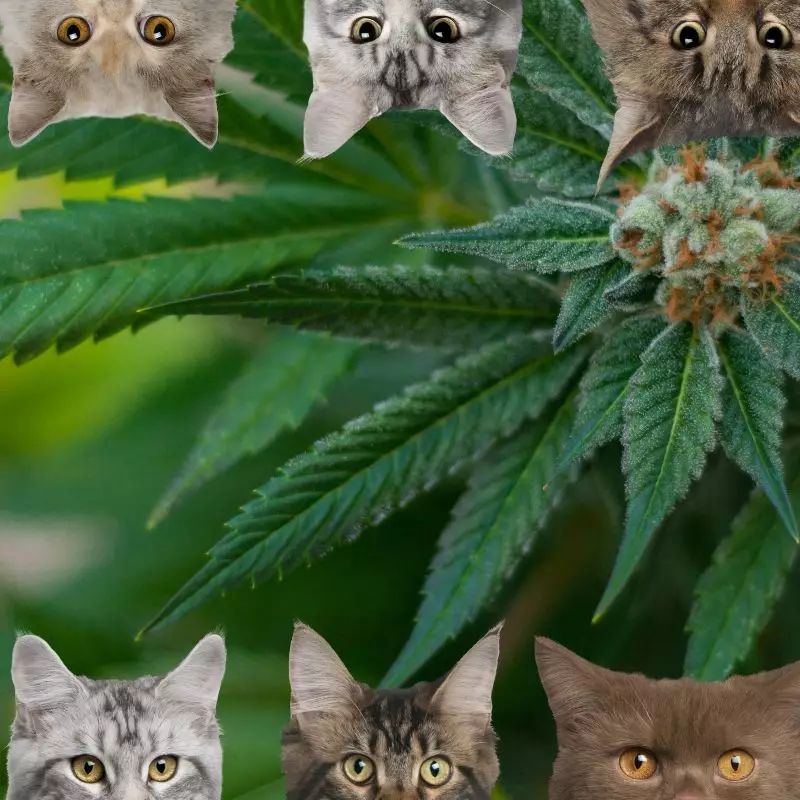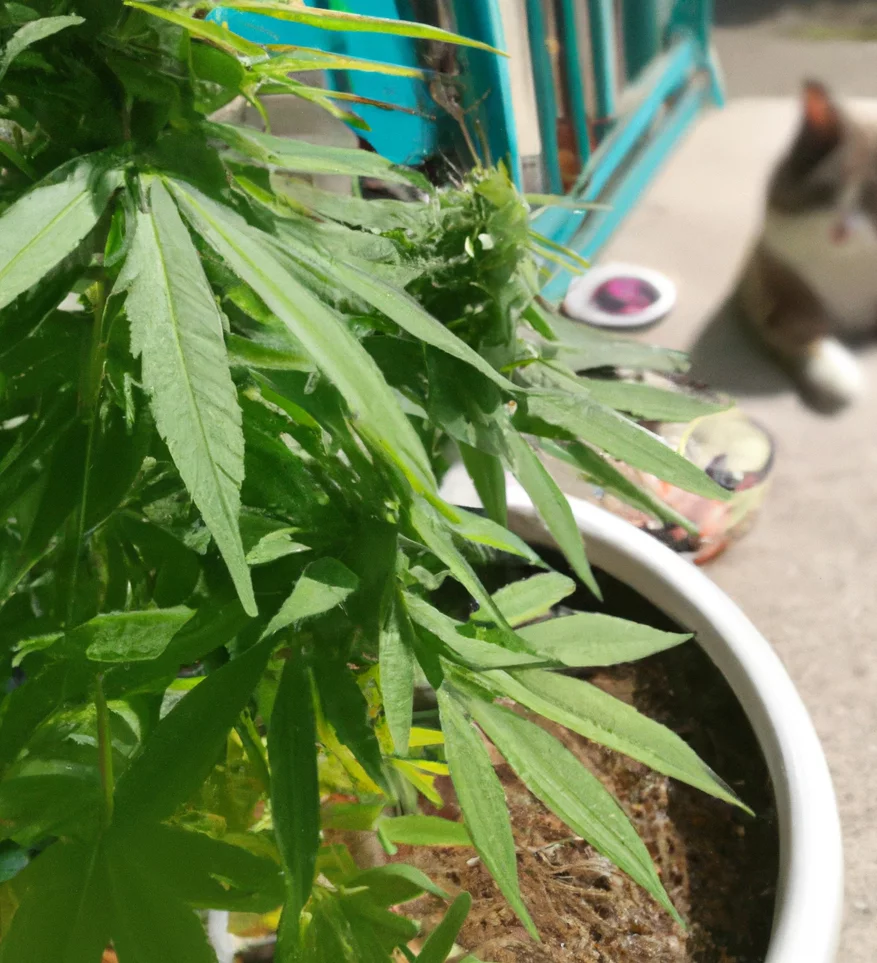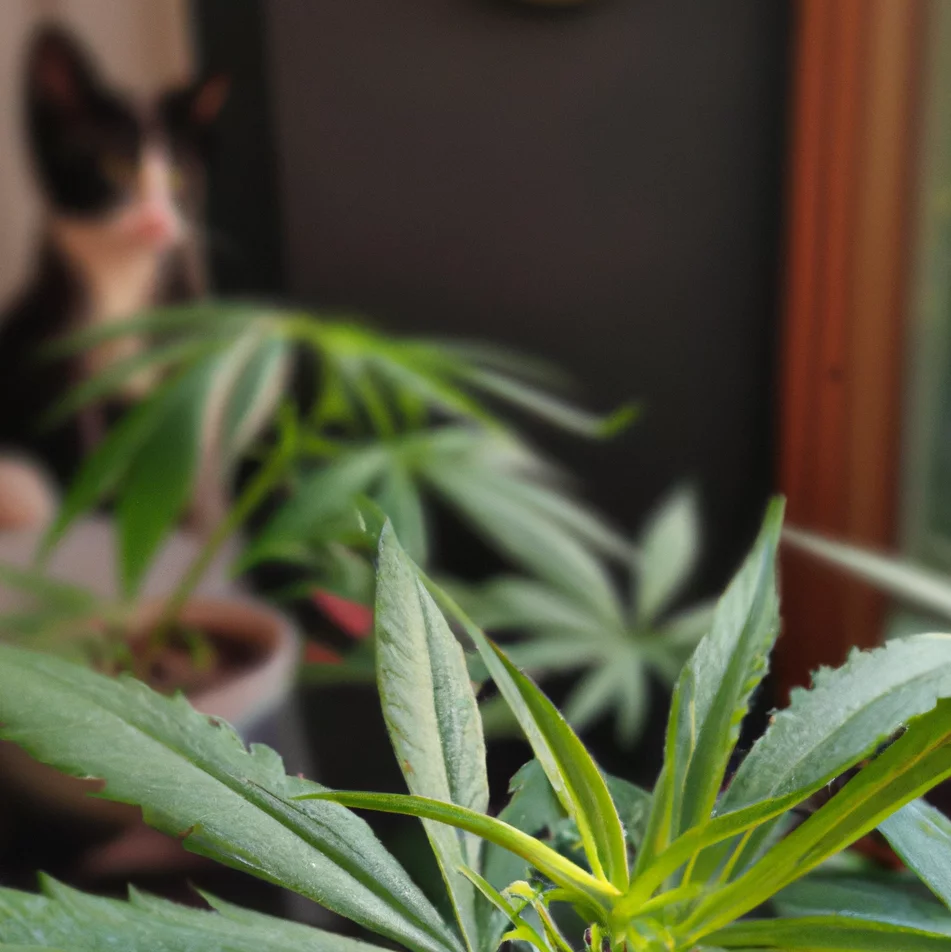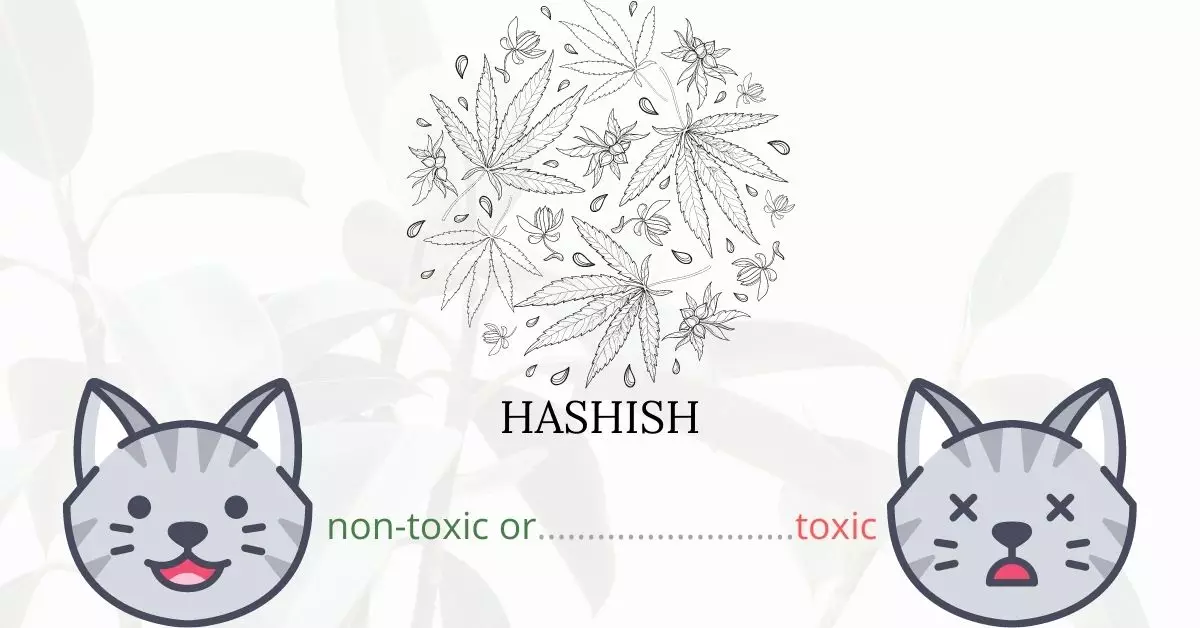Yes, hashish is toxic to cats. Hashish, commonly referred to as hash, is an extract derived from the resin glands, or trichomes, of the cannabis plant. While it may be safe and even pleasurable for humans when consumed responsibly, the same cannot be said for our feline friends. The main component responsible for the toxicity in hashish is tetrahydrocannabinol (THC). In humans, THC can produce euphoria and may even help alleviate pain and anxiety. For cats, however, it can act like a neurotoxin. Exposure to THC can lead to a loss of motor control, disrupted physiological processes, vomiting, dilated pupils, low blood pressure, and seizures, among other severe symptoms.
This article was written in close collaboration with a team of experienced DVMs (doctors of veterinary medicine). Their invaluable insights have allowed us to present accurate and up-to-date information on the potential dangers of hashish and its effects on cats. To further ensure the credibility of our findings, we have also consulted high-authority websites such as the ASPCA and PetMD.
Clinical Signs of Hashish Poisoning in Cats

If a cat is exposed to hashish through contact, inhalation, or ingestion, certain clinical signs can manifest, which are indicative of poisoning. Recognizing and understanding these signs promptly can be crucial for seeking timely medical intervention.
- Vomiting: Due to the body’s attempt to expel the toxic substance, a cat may vomit soon after consuming hashish.
- Loss of Coordination: THC affects the neural pathways and the cerebellum in cats, leading to impaired movement and balance.
- Hypersalivation: THC can interfere with the autonomic nervous system, causing overproduction of saliva.
- Dilated Pupils: The interference with the neural receptors by THC can lead to an involuntary dilation of the pupils.
- Excitation: Some cats might experience heightened levels of excitability due to the stimulating effects of THC.
- Apathy Toward Outside Stimulus: This can occur due to the psychoactive properties of THC, which may cause a cat to become unresponsive or indifferent to its surroundings.
- Lethargy: The sedative effects of THC can cause fatigue or a state of drowsiness.
- Low Blood Pressure: THC can cause vasodilation, resulting in a drop in blood pressure.
- Low Body Temperature: As a result of vasodilation and decreased metabolic activity, a cat might exhibit hypothermia.
- Loss of Consciousness: High doses of THC can overwhelm a cat’s system, leading to temporary unconsciousness.
- Slowed Heart Rate: The depressant effect of THC can impact the cat’s heart rate, slowing it down significantly.
- Seizures: Due to THC’s effect on the neural receptors and brain activity, some cats might experience convulsive episodes.
- Sleepiness: This is a common reaction to THC, given its sedative properties.
- Death (in rare cases): In extreme cases, especially if intervention is not sought in time, the combined adverse effects of hashish poisoning can sadly be fatal.
For cat owners, it’s essential to keep a vigilant eye on these symptoms if there’s any suspicion of hashish exposure. Detailed observations can significantly aid a veterinarian in pinpointing the issue and providing the necessary treatment.
First Aid and Treatment of Hashish Poisoning in Cats

There is no direct treatment for cats who have been poisoned by hashish. As a result, the doctor would most likely adopt a mitigation plan to prevent future worsening of the symptoms until the THC is naturally excreted from the cat’s system. To absorb any remaining trace parts of THC, the initial step will be to either pump the cat’s stomach or deliver a dose of activated charcoal. Then, intravenous fluid therapy will be initiated to replenish fluids lost due to vomiting as well as to flush toxins from the cat’s body by inducing urine.
Recovery from Hashish Poisoning in Cats

Recovery of your cat may take time particularly if he or she suffered from severe poisoning. Keep him or her comfortable indoors and limit his physical activities. Continue giving plenty of fluids to clear up his or her stomach. Make sure to follow your veterinarian’s orders about post-treatment care.
Prevention of Hashish Poisoning in Cats
Keep all types of cannabis, whether medical or recreational, out of your pet’s reach. When not in use, consider storing toxic items in high and locked cabinets or drawers. Keep your cats away from secondhand smoking in a separate, well-ventilated room. Cats have a keen sense of smell and may be enticed to eat candy, chips, chocolates, and cannabis if they are easily obtainable. Take your cat to your veterinarian or the nearest emergency veterinary hospital for treatment if you detect strange behavior in your pet and suspect cannabis exposure.
If you love plants but have cats at home, check out these lists:





